‘Good’ cholesterol may be linked to heightened glaucoma risk among over 55s
Powered by WPeMatico
Powered by WPeMatico
Powered by WPeMatico
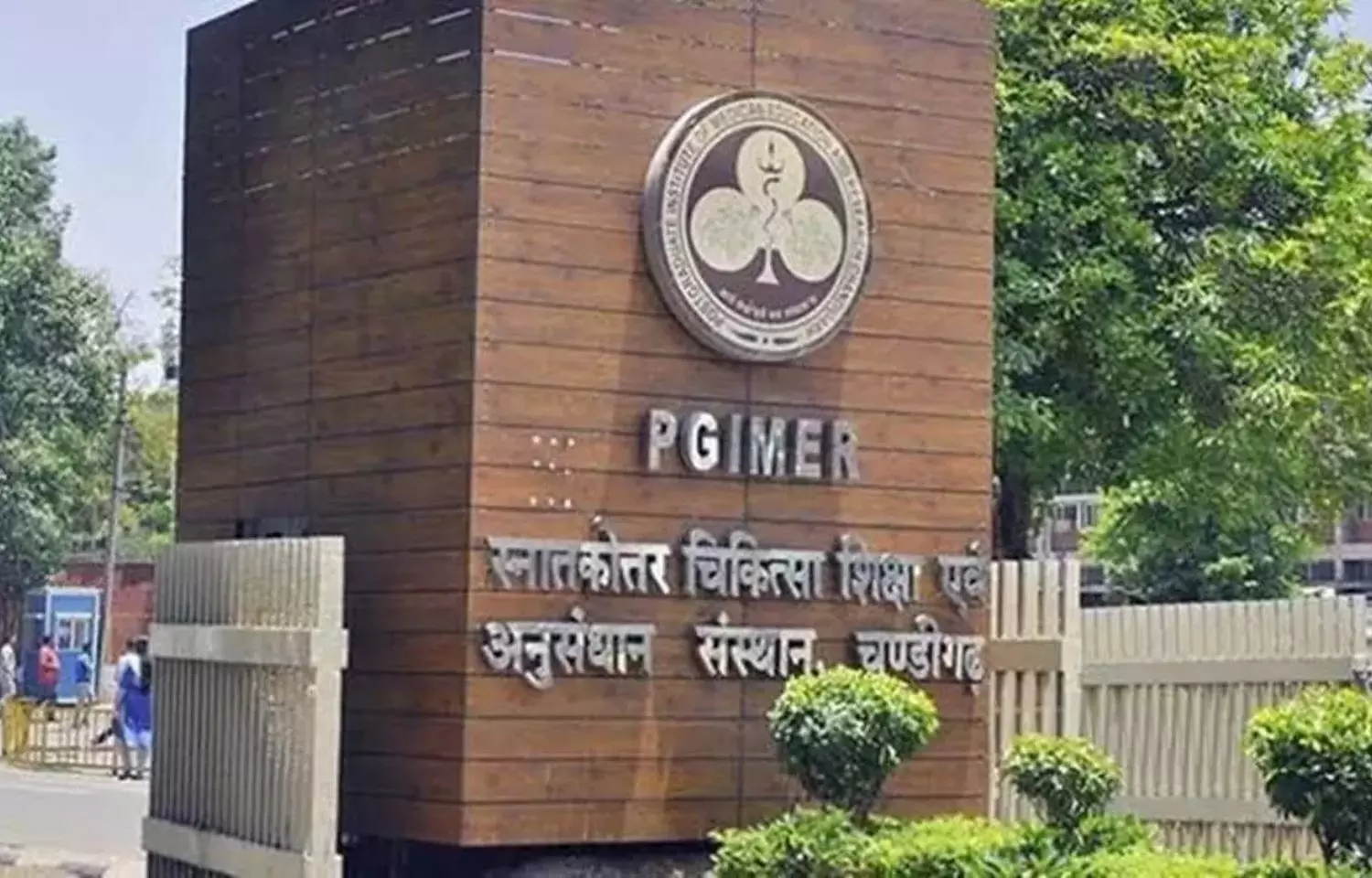
Chandigarh: The Postgraduate Institute of Medical Education and Research (PGI) in Chandigarh has received approval from the Union Ministry of Health and Family Welfare to set up advanced medical facilities in Sarangpur. This move aims to not only expand PGI’s capacity and strengthen medical education and healthcare services in the region.
Medical Dialogues had earlier reported that the Post Graduate Institute of Medical Education and Research (PGIMER) is moving forward with its proposal for commencing the MBBS course next year and soon the institute is going to approach the Standing Finance Committee for approval of the budget from the Union Government. The proposal for setting up the MBBS course with 100 MBBS seats will be placed before the Finance Committee in October. The meeting, chaired by the Secretary of the Union Health Ministry, Rajesh Bhushan, is also expected to discuss the budget approval.
The project, which is being spearheaded by PGI and supported by Union Health Minister J.P. Nadda, includes the creation of a 100-seat MBBS college, a 500-bed trauma center, an advanced cancer center with a capacity for 500 patients, and a multi-level parking facility with space for 3,000 cars.
PGI Director Prof. Vivek Lal, who has been at the forefront of this expansion, described the project as a long-term vision for the region’s healthcare system.
Also Read: MBBS Course Approval in Sight for PGI Chandigarh
Speaking to TOI, he said, “This is the dream project of the health minister, who has helped us in the expansion of PGI for better patient management. Also, the medical college under PGI will provide world-class MBBS teaching in this part of the region.”
Following the approval, the next step will involve obtaining sanctions from the finance ministry and the governing body before proceeding with the construction.
Since its establishment in 1963, PGI has been at the forefront of medical services in the region, serving an average of 50,000 visitors daily. However, this heavy footfall has put a strain on its resources, highlighting the need for expanded space and facilities. To address this, PGI requested an additional 50.76 acres of land at Sarangpur, which will serve as the foundation for a much-needed campus expansion. The land, valued at Rs 1,011.8 crore, was ultimately transferred to the institute by UT for Rs 180.7 crore on a 33-year leasehold basis, with an option for renewal for an extended period.
Following this, the land was officially handed over by the Chandigarh administration in November 2021. The initial plans for the Sarangpur campus included the establishment of several specialized centers, including a 750-bed gastroenterology and liver center, an advanced endocrinology and diabetes research center, a blood transfusion center, and an 80-bed advanced dialysis center.
However, following a series of meetings and consultations in late 2020 and 2021, the final proposal was revised to include the 100-seat MBBS college, a 16,000-patient capacity screening OPD/emergency, advanced cancer and trauma centres, multi-level parking, a mortuary, and several other key facilities, including a convention center with seating for 800 people.
In addition to the healthcare facilities the new campus will also have a museum, an STP/ETP (Sewage Treatment Plant/ Effluent Treatment Plant), and a Sarai complex to further support the medical community and visitors.
According to TOI, under the residential area, there will be type 3, 4, and 5 houses with 9 blocks. The final nod has also been given for a married doctors’ hostel and a bachelor doctors’ hostel along with a shopping complex on the campus. PGI shall now prepare a master plan based on the new proposal and get approval from local authorities.
Planned Facilities and Features:
According to the news reports, the first phase of the Sarangpur campus will include the following features:
– 100-seat MBBS college
– Screening OPD/emergency for 16,000 patients
– Advanced cancer center for 500 patients
– Advanced trauma center for 500 patients
– Multi-level parking for 3,000 cars
– Mortuary
– Sarai complex
– One super-specialty block
– Museum
– Convention center with seating capacity for 800 persons
– STP/ETP
Also Read: PGI Chandigarh sanctions Rs 22.57 Crore to Settle Outsourced Workers’ Arrears
Powered by WPeMatico
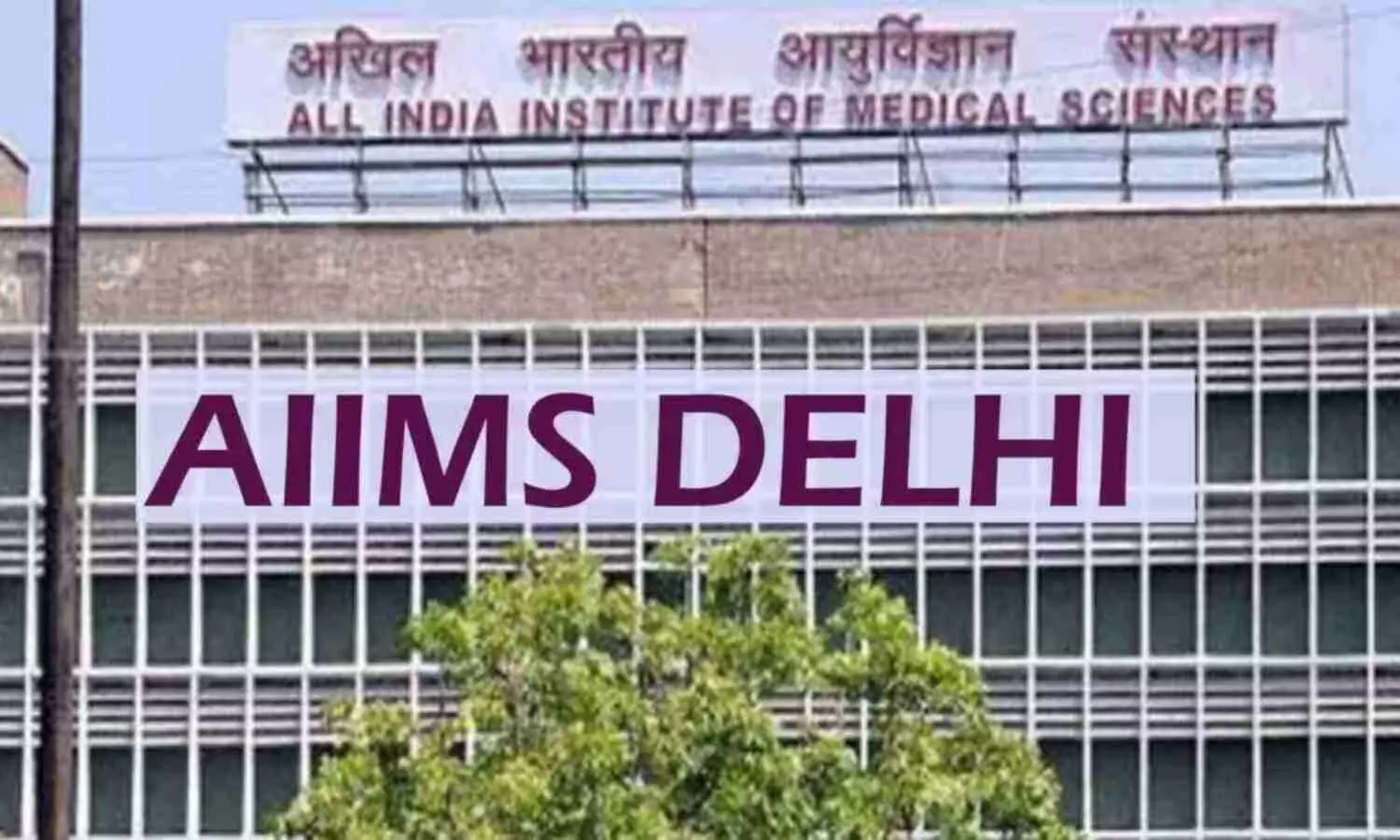
New Delhi: Days after Prime Minister Narendra Modi’s national appeal to address the rising obesity burden in India, experts from the All India Institute of Medical Sciences (AIIMS), Delhi, emphasized the need for dietary awareness, lifestyle changes, stress management, and early interventions to combat the health risks associated with obesity.
Speaking at a press conference, they highlighted the adverse health effects of obesity and the urgent need for preventive measures.
The event reinforced Prime Minister Narendra Modi’s appeal to the nation to reduce oil consumption which is a critical factor contributing to the rising obesity burden in the country.
According to the PTI report, Dr M Srinivas, Director, AIIMS-Delhi, said, “As the national conversation shifts towards reducing oil consumption and promoting better nutrition practices to combat obesity, AIIMS experts can bring credible, evidence-based information.” He also highlighted the need for early nutritional education and reinforced the significance of school-based interventions in tackling the obesity menace.
Also Read:Delhi AIIMS team visits Rajouri to probe mysterious deaths, record clinical history
Dr Rajeev Narang, Professor and Head of Department of Cardiology, emphasised that obesity is treatable and urged people to monitor their Body Mass Index (BMI) and waist circumference.
He stressed the importance of tackling abdominal obesity, which significantly raises the risk of heart disease and hypertension.
Dr Naval Kishore Vikram, Professor, Department of Medicine, highlighted a paradigm shift in obesity classification, noting that abdominal fat accumulation in Indians makes BMI an imperfect measure.
The waist-to-height ratio was recommended as a more accurate indicator.
He pointed out the need to view obesity as a chronic disease rather than a cosmetic concern considering its increasing prevalence across all socio-economic groups, including rural areas.
Dr Nitish Naik, Professor at Department of Cardiology, called for early action before obesity leads to severe health issues like heart disease and diabetes. He stressed the importance of eliminating unhealthy food options, reports PTI.
Dr Nand Kumar, Professor, Department of Psychiatry, explained the link between stress and obesity, attributing weight gain to oxidative stress and hormonal imbalances.
“Use the CALM approach – Conscious activity, Active learning, Lifestyle modifications, and Mindfulness – as a strategy to combat stress-induced obesity,” he said.
Chief Dietician Dr Parmeet Kaur and senior Dietician Dr Monita Gahlot advocated for reduced consumption of ultra-processed foods, increased intake of fruits, vegetables, and nuts, and an improved food label literacy among consumers.
Dr Asuri Krishna, Additional Professor of Surgical Disciplines, cautioned against bariatric surgery as a primary solution.
Dr Rima Dada, professor in the department of Anatomy highlighted the role of yoga in managing obesity, emphasising its ability to enhance emotional resilience and regulate gene expression.
She explained that obesity increases morbidity and mortality by triggering oxidative stress and inflammation, leading to gene dysregulation.
Dr Dada also recommended at least 30 minutes of daily yoga to encourage mindful eating and reduce stress.
Also Read:Delhi AIIMS responds to Rahul Gandhi’s video, says Only One Attendant per Patient Allowed
Powered by WPeMatico
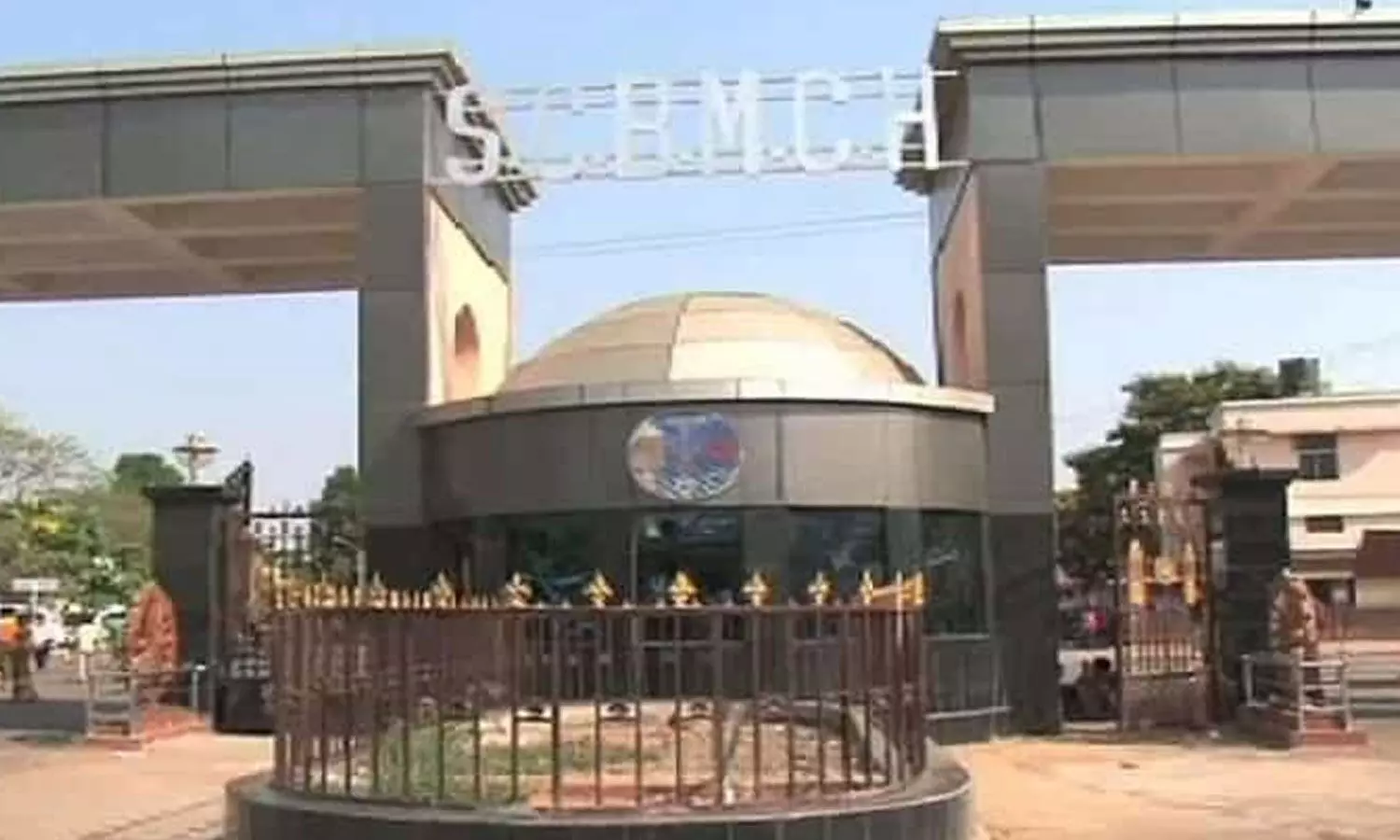
Bhubaneswar: Odisha Chief Minister Mohan Charan Majhi has approved the establishment of a 500-bed trauma care centre at SCB Medical College and Hospital, Cuttack, an official statement said.
The proposal in this regard was approved on Monday evening.
According to the PTI report, the trauma care centre, to be set up under ‘Pradhan Mantri Swasthya Suraksha Yojana’ (PMSSY) will be crucial in saving a lot of lives as accident victims can be provided with immediate treatment under one roof, said the statement issued by the Chief Minister’s Office (CMO).
Also Read:SCB Medical College Hospital opens liver transplant OPD
The central government will provide 60 per cent of the funds for the trauma care centre, while the state government will bear the remaining 40 per cent cost, it said.
The chief minister had written a letter to the Union Health Minister JP Nadda in July 2024 to set up the trauma care centre at the SCB Medical College and Hospital, Cuttack.
After the central government’s in-principle approval, the state government cleared the project. Now, a detailed project report will be prepared and steps will be taken to establish the trauma care centre, the government said.
Medical Dialogues had earlier reported that in a significant development, the Directorate of Medical Education and Training (DMET) has signed an MoU with Chennai-based MGM Healthcare for a heart transplantation facility at the state-run SCB Medical College and Hospital in Cuttack.
A heart transplantation facility will soon be available at the state-run SCB Medical College and Hospital in Cuttack, Health Minister Mukesh Mahaling said. For this, the Directorate of Medical Education and Training (DMET) signed an MoU with Chennai-based MGM Healthcare, he said. The state government is committed to providing the best healthcare services to the people of Odisha, Mahaling said.
Also Read:SCB Medical College and hospital to set up bone bank soon
Powered by WPeMatico

An Instagram reel claims that a spoon of ghee and black pepper in water cures piles in 10 days. The claim by the user is FALSE.
In an Instagram reel, it is claimed that a spoon of ghee and black pepper in water cures piles in 10 days. The reel by the user ai.health_explain, is captioned as “ये Secret आपको कोई नहीं बताएगा।” The user says, “99% of the people in the world do not know that if any of your friends is suffering from piles and it is not getting cured, mix a spoonful of ghee with black pepper, dissolve it in water, and make them drink it. This will cure piles in 10 days.“
The user’s reel has gained significant traction with 20.9 million views, 132,196 likes, 460 comments, and 142,000 shares. You can check it out here.
The claim by the user is FALSE. While ghee and black pepper may aid in managing certain symptoms of piles, no scientific evidence supports the claim that a spoon of ghee and black pepper in water cures piles in 10 days.
Piles, or hemorrhoids, are swollen and inflamed veins in and around the anus or lower rectum, caused by increased pressure due to straining during bowel movements, chronic constipation, or pregnancy. Complications can include blood clots in external hemorrhoids, leftover skin tags after clots dissolve, infections, strangulation of prolapsed internal hemorrhoids due to restricted blood supply, and anemia from chronic blood loss.
Hemorrhoids are classified into four grades based on their severity. Grade I hemorrhoids remain inside the rectum but may protrude slightly beyond the dentate line with straining. Grade II hemorrhoids prolapse through the anus during straining but retract spontaneously. Grade III hemorrhoids protrude externally and require manual reduction. Grade IV hemorrhoids remain persistently prolapsed and cannot be pushed back. Surgical intervention is typically necessary for Grade III and IV hemorrhoids due to their severity and persistence.

Dr. Vivek Kumar Singh, Consultant Gastroenterologist, Holy Family Hospital Bandra Mumbai explained, “Piles (hemorrhoids) can often be managed effectively through lifestyle changes, dietary adjustments, and medical treatments. Mild cases may resolve with increased fiber intake, hydration, and exercise. For more severe cases, treatments like medication, minimally invasive procedures, or surgery may be required. Consulting a doctor for a personalized approach is essential.”
Black pepper (Piper nigrum L.), known as the “King of spices,” is not only valued for enhancing flavor but also for its numerous medicinal properties. Rich in bioactive compounds like piperine, it offers antimicrobial, antioxidant, antidiabetic, and hypolipidemic effects. Studies have shown its potential to fight infections and reduce oxidative stress. Black pepper also possesses anti-inflammatory, analgesic, and neuroprotective properties.
Ghee offers significant nutritional benefits, primarily due to its composition and nutrient profile. Made from milk, cream, or butter through processes that remove almost all water and non-fat solids, ghee is predominantly fat, containing 99.5% fat and less than 0.5% moisture. It serves as a rich source of fat-soluble vitamins, including vitamins A, D, E, and K. These vitamins play crucial roles in supporting vision, bone health, immune function, and blood clotting. Additionally, ghee contains phospholipids, contributing to cellular health and function.
No, ghee and black pepper in water can cure piles in 10 days. While these ingredients may provide symptom relief, they are not a treatment for piles or hemorrhoids. Further, there is no scientific evidence or medical consensus to back the claim by the user.
Studies investigate the role of ghee in managing piles (hemorrhoids). The findings of the study published in the World Journal of Pharmaceutical and Medical Research suggest that milk and milk products like butter, buttermilk, and ghee may contribute to alleviating symptoms and supporting the management of piles.
Another study conducted by Minhaj Ahmad et. al. found that increased consumption of cow’s milk, butter, buttermilk and ghee may help in managing the symptoms of piles (hemorrhoids).
Black pepper is investigated for its therapeutic potential in managing various health conditions. A study published in the International Journal of Food Sciences and Nutrition suggests that black pepper may offer benefits in alleviating symptoms of cough, cold, and piles.
While the ingredients mentioned in the remedy might alleviate mild symptoms associated with hemorrhoids, they cannot cure piles in 10 days. Hemorrhoids are a complex condition that often requires a combination of dietary, lifestyle, and medical interventions and the ingredients mentioned lack the medicinal properties necessary to shrink or “cure” hemorrhoids entirely.

Responding to the claim Dr. Girish SP – Surgical Gastroenterologist, Aster RV Banglore said, “Ghee and black pepper are usual home remedies that can be used when people suffer from cold but ghee acts as a laxative. Laxative is a significant step in the treatment of piles. So, definitely, to some extent it is helpful and the black pepper usually has anti-oxidants, omega-3 fatty which may help in reducing inflammation. So, it is a general remedy, not a specific remedy for piles. So, it will also help to some extent, but in severe piles, none of them is effective. .”
Dr. Vivek Kumar Singh, Consultant Gastroenterologist, Holy Family Hospital Bandra Mumbai further said, “While ghee and black pepper are traditional remedies known for their digestive benefits, there is no scientific evidence to confirm they can cure piles in 10 days. They may help alleviate some symptoms, but addressing piles typically requires a comprehensive approach, including dietary changes, hydration, and medical advice.”
The claim that “a spoon of ghee and black pepper in water can cure piles in 10 days” is FALSE. While ghee and black pepper may provide some relief from the symptoms, there is no scientific evidence or medical consensus that they can “cure” piles (hemorrhoids) in such a short time.
Hence, the user’s claim is FALSE.
Powered by WPeMatico

Chennai: The Legal
Coordination Committee for Government Doctors (LCC) has strongly criticized the
Tamil Nadu government’s decision to recruit 658 specialist doctors through
walk-in interviews.
The committee has raised concerns that this move, announced by the Health Minister, would create confusion and
significantly impact the state’s healthcare sector. The vacancy also includes 207 posts for obstetricians.
In a press release, the
LCC has emphasized that Tamil Nadu, known for its strong healthcare infrastructure,
should adhere to established recruitment procedures, such as those followed by
the Medical Services Recruitment Board (MRB), instead of opting for rushed
hiring processes through random walk-in interviews. The committee also raised concerns about fairness and
transparency, recalling that both doctors and the DMK had opposed similar
recruitment methods under the previous administration, reports The Hindu.
To prevent disruptions in
the careers of existing government doctors pursuing higher education, the LCC has suggested that recruits be appointed to supernumerary positions under the
Directorate of Medical Services and the Directorate of Public Health. The
committee has also urged the government to prioritize experienced doctors,
particularly those who have served in Primary Health Centres for two to three
years, in specialist appointments. LCC has called on the
government to reconsider its approach and adopt a structured, transparent
hiring process instead of walk-in interviews. The recruitment process in Tamil
Nadu has been under the scrutinizing gaze of the doctors since last year.
Last year doctors, who
previously qualified MRB examination held to recruit assistant surgeons for
1,021 posts, were upset with the recruitment notification issued by the Medical
Services Recruitment Board (MRB) inviting applications for 2,553 vacant posts
of assistant surgeons temporarily in the Tamil Nadu Medical Service. Shocked
over the new recruitment notification, they demanded that candidates who had
qualified should be considered to fill the vacant posts instead of holding a
new examination.
Powered by WPeMatico
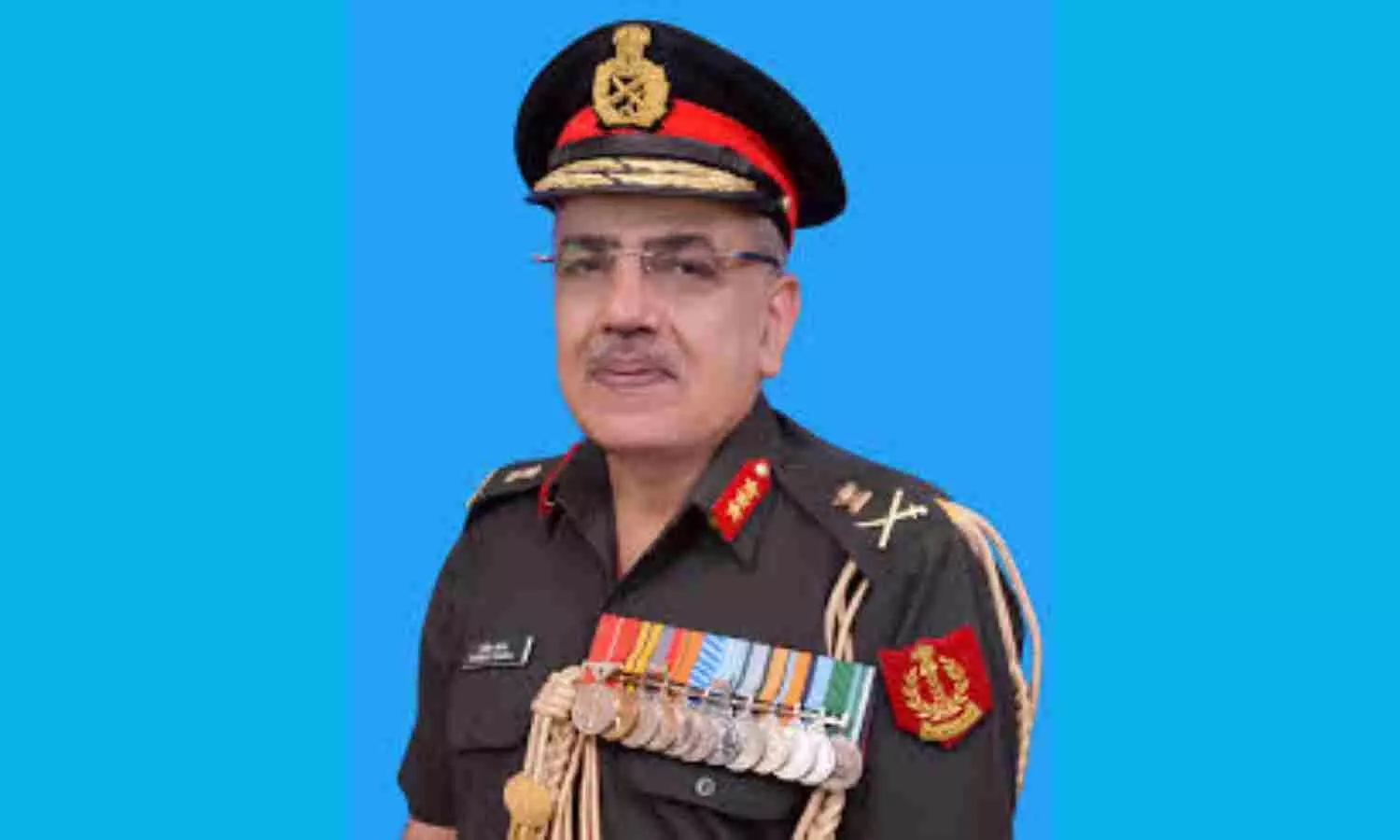
Pune: In a significant development, Lieutenant General Sandeep Thareja has been appointed as the Director General Medical Services (Air) on secondment to the Air Force holding the rank of Air Marshal.
Dr Thareja, who was previously appointed as the Director and Commandant of the Armed Forces Medical College (AFMC) in Pune, in July 2024 officially stepped down from the position on February 2, 2025.
Also read- Lt Gen Sandeep Thareja takes charge as Director of AFMC Pune
An official statement issued on Monday as reported by the Indian Express, stated, “Throughout an illustrious career spanning over 38 years, the General Officer has held a series of distinguished academic, clinical, and administrative appointments, leaving an indelible mark on the field of military medicine.”
Congratulating Lieutenant General Sandeep Thareja for the achievement, the official ‘X’ handle of the Director General Armed Forces Medical Services (DGAFMS), the apex medical organization of the Armed Forces, said, “Under his leadership, in a brief span of six months, AFMC underwent a transformation with establishment of modern facilities for cadets and staff, introduction of newer training & research capabilities like the #DIAMOnDS lab pioneering Next-Gen Sequencing for Oncology, SMART Classroom for PG training, AR/VR-based training & 3D modelling as well as Health Technology Assessment Center for policy & research.”
Lt Gen Thareja’s journey in the Indian Army began in 1986. He completed his MD in Medicine from Army Hospital (R&R), New Delhi (1997), and a DM in Gastroenterology from AIIMS, New Delhi (2005), where he was honoured as the best DM student. Further enhancing his credentials, he earned an M Phil in Defence and Strategic Studies from the National Defence College, New Delhi, in 2018.
During his previous tenure as the senior consultant, he was instrumental in influencing important healthcare policies such as the Armed Forces Cancer Registry, Guide to Medical Officers, Disability Pension Board, Agniveer Medical Policy, Common Tri-service Medical Classification for Disabilities, Biosensors, Performance Audit of Military Hospitals, and Genomic Sequencing in the Armed Forces.
Moreover, he also held numerous distinguished academic, clinical, and administrative roles. Notable positions include Medical Specialist at the United Nations Mission in Sierra Leone (UNAMSIL), Senior Advisor (Medicine) & Gastroenterology at various military hospitals, and Commandant of the Command Hospital (Central Command).
His administrative acumen was evident in multiple leadership roles, including Commandant of 167 Military Hospital, Brigadier IC Administration and Commander Troops at Base Hospital Delhi Cantt, and Commandant of Command Hospital (Central Command), notably, during his tenure as Brigadier IC Administration and Commander Troops at Base Hospital Delhi Cantt during the COVID-19 pandemic.
Lt Gen Thareja’s exceptional service has earned him numerous accolades, including the Vishisht Seva Medal (2011 and 2024) and the Sena Medal (2022). These awards reflect his dedication, leadership, and contributions to Military Medicine.
ARMEDiCON 2025, the 73rd Armed Forces Medical Conference, was successfully organized under his leadership, showcasing technological innovations such as medical logistics drones, Multiutility Utility Legged Equipment ‘Sanjay’, Yodharakshak challenge, Undergraduate research, patient safety and soft skills panel discussions.
Also read- Lt Gen Shankar Narayan takes charge as Commandant of Army Hospital Research and Referral
Powered by WPeMatico
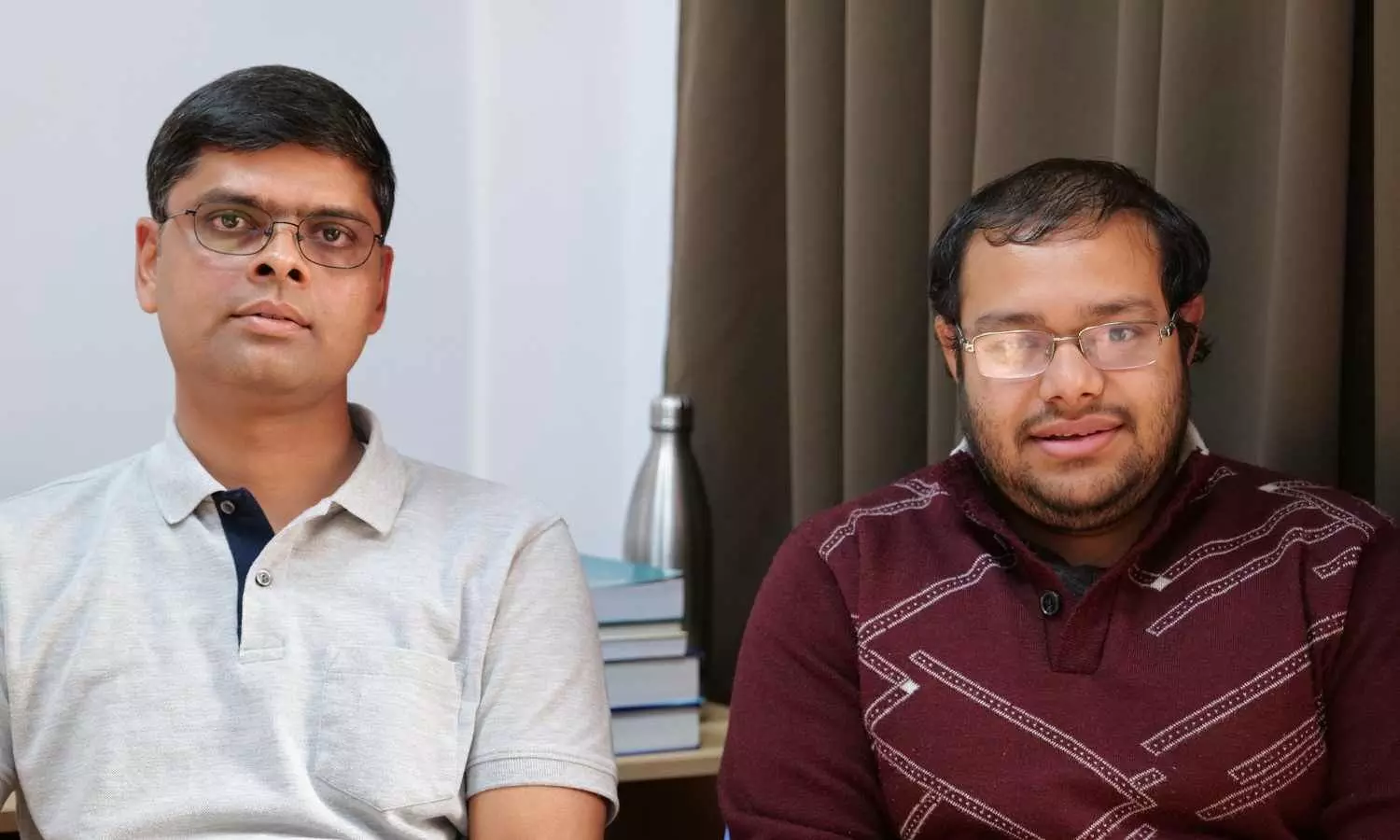
Guwahati: Researchers at the Indian Institute of Technology Guwahati (IIT Guwahati), in collaboration with leading institutions worldwide, have developed an innovative multi-stage clinical trial method aimed at revolutionising personalised medical care.
This cutting-edge approach adapts treatment plans in real-time based on each patient’s unique responses during trials, enabling highly tailored and effective healthcare solutions.
The research, conducted in partnership with Duke-NUS Medical School, the National University of Singapore, Singapore, and the University of Michigan, USA, focuses on Dynamic Treatment Regimes (DTRs) designed through Sequential Multiple Assignment Randomised Trials (SMARTs). Together, these frameworks tackle the critical challenge of optimising treatment strategies, a sequence of treatments, for patients with varying responses to therapies over time.
DTRs are advanced decision rules that adapt treatments dynamically as a patient’s condition evolves. For example, if a diabetes patient does not respond well to an initial medication, the DTR might recommend switching drugs or combining therapies. By incorporating intermediate outcomes, such as changes in blood sugar levels, DTRs move beyond the one-size-fits-all model, tailoring care to individual progress and needs.
Multi-stage clinical trials are essential for developing effective DTRs, and SMART methodology enables researchers to test various treatment sequences to find the best fit for each patient. Unlike traditional trials, SMART involves multiple stages of treatment, where patients are reassigned based on their responses to earlier interventions.
Traditional SMART trials assign patients to treatment arms in equal numbers, even when some treatments prove less effective, based on interim data. This often leads to unnecessary treatment failures. Dr. Palash Ghosh and his team have developed an adaptive randomisation method that dynamically assigns patients to treatment arms based on real-time trial data by optimally changing the patient allocation ratios in favor of a better-performing treatment sequence at that point of time of the trial.
This innovation ensures that more patients receive effective treatments while maintaining scientific rigor. By focusing on both short-term and long-term outcomes, the method improves the entire treatment process, reducing failures and enhancing patient care.
Speaking about the research Dr. Palash Ghosh, Assistant Professor, Dept. of Mathematics, IIT Guwahati, said, “Adaptive designs like this would encourage more patient participation in clinical trials like SMART. When patients see they are receiving treatments tailored to their needs, they are more likely to stay engaged. This approach also has vast potential for public health interventions, such as tailoring substance abuse recovery plans to individual needs as well as in other chronic diseases.”
The findings of this research have been published in the esteemed journal Biometrics in a paper co authored by Dr. Palash Ghosh, along with his research scholar Mr. Rik Ghosh from IIT Guwahati, Dr. Bibhas Chakraborty from Duke-NUS Medical School, National University of Singapore, along with Dr. Inbal Nahum-Shani and Dr. Megan E. Patrick, from University of Michigan.
This new adaptive multi-stage clinical trial method represents a major stride toward more effective, patient-centric healthcare, potentially transforming public health interventions and advancing the global pursuit of personalised medicine. As a next step, the research team is collaborating with Indian medical institutions to conduct SMART trials for the effective management of mental health issues using traditional Indian medicines.
Also Read:IIT Guwahati alumni develop device to diagnose chronic non-communicable diseases
Powered by WPeMatico

A new systematic review and meta-analysis published in the Clinical Nutrition ESPEN revealed promising outcomes for the combined use of semaglutide and basal insulin in managing type 2 diabetes mellitus (T2DM). This study analyzed 7 randomized controlled trials (RCTs) which involved 2,354 patients and found significant improvements in glycemic control and weight loss without a higher risk of serious adverse events.
The primary measure of the research was to assess changes in hemoglobin A1c (HbA1c) levels. Secondary outcomes included weight loss, fasting blood glucose (FPG) changes, and the incidence of adverse effects, including gastrointestinal reactions.
The patients who received a combination of semaglutide and basal insulin experienced a substantial reduction in HbA1c levels, with a mean difference of -1.17% when compared to placebo or other treatments. Weight loss was also notable, where the patients shed an average of 5.99 kg, and fasting blood glucose levels dropped by 1.08%.
While the combination treatment did not increase the risk of general adverse events, it was associated with a higher occurrence of gastrointestinal issues such as nausea, vomiting, and diarrhea. Also, there was no increased risk of hypoglycemia which is a common concern in diabetes management.
The findings support the potential of semaglutide in combination with basal insulin as an effective treatment strategy for individuals with T2DM who require intensified glycemic control and weight management. These results may influence treatment guidelines and offer clinicians a safer option for managing complex cases of diabetes without the heightened risk of dangerous blood sugar lows.
Given its impact on both glycemic control and weight loss, semaglutide continues to demonstrate versatility as a crucial tool in the therapeutic arsenal for T2DM management. Overall, this research offers hope for people living with type 2 diabetes by highlighting a treatment regimen that achieves clinical goals while minimizing risks. Further studies and dedicated trials may refine the dosage guidelines and help optimize patient outcomes.
Source:
Chen, B., Tao, L., Tian, M., & Ji, Z. (2025). Efficacy and safety of combination of semaglutide and basal insulin in patients with of type 2 diabetes mellitus: A systematic review and meta-analysis. Clinical Nutrition ESPEN. https://doi.org/10.1016/j.clnesp.2025.01.056
Powered by WPeMatico
